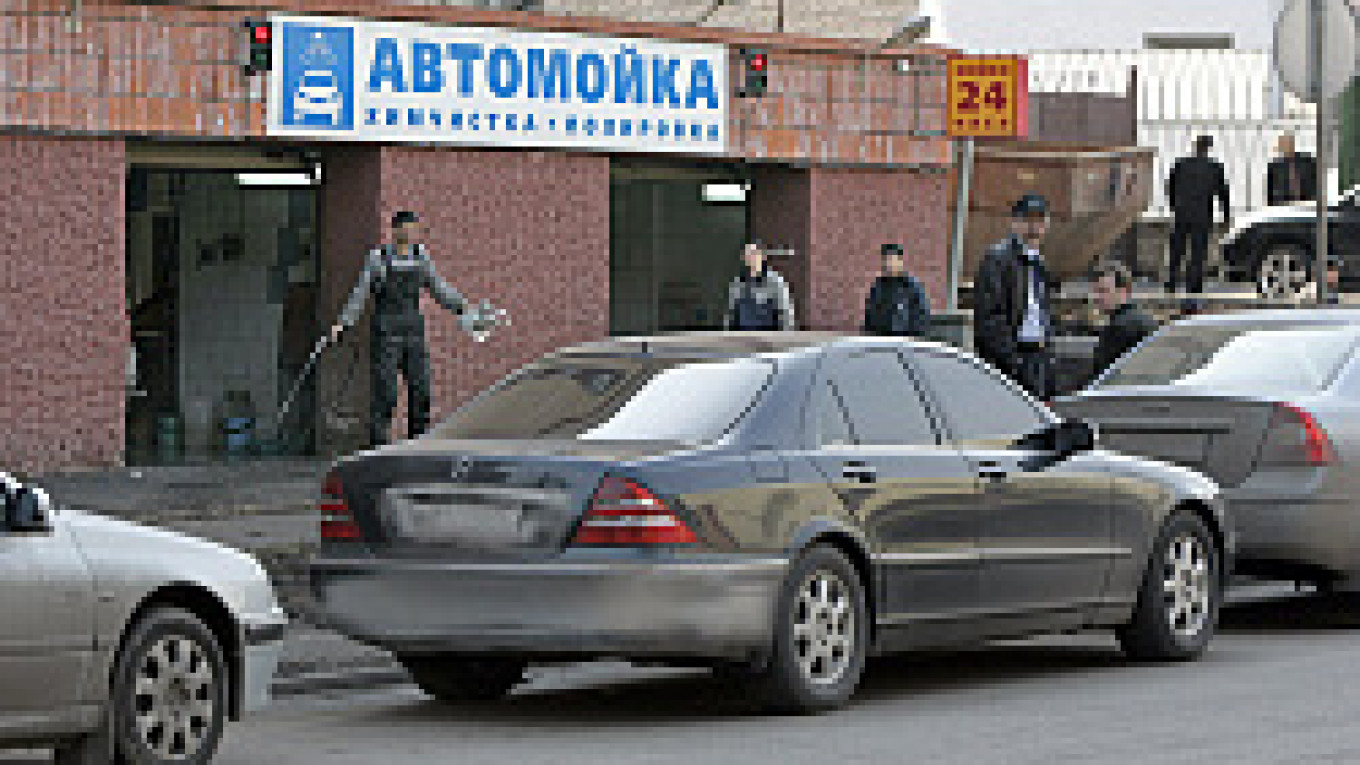The crackdown, which started Monday and runs through May 10, is part of the traffic police's annual spring drive to clean up the streets.
"It helps restore cleanliness standards after the winter," traffic police spokesman Vyacheslav Trubin said by telephone. "And it helps safety because a lot of car's windows are dirty, and license plates are hard to read."
The Administrative Code, the legislation that provides the teeth for the campaign, does not make it a crime to drive a dirty car or even offer a definition of what a dirty car is. But it does empower traffic police to fine drivers 50 rubles ($1.80) for having license plates that are illegible from a distance of up to 20 meters.
In addition to the fine, traffic police will deny dirty cars entrance to the city until they visit car washes. Anyone caught trying to wash their cars outside designated facilities -- including car washes and special areas around parking garages -- faces a fine of 500 to 1,000 rubles, according to the Administrative Code. Military veterans can get their cars washed for free.
Some traffic police officers are trying to mislead drivers into paying 1,000 ruble fines for just having dirty cars, Ekho Moskvy radio reported.
Drivers, however, should keep in mind that driving a dirty car is not in violation of the law and that the fine of 50 rubles can only be imposed for unreadable license plates, said Viktor Pokhmelkin, head of Automobile Russia, a group that champions drivers' rights.
"I think they should keep a constant watch on this issue, not just for one month," he said, referring to the traffic police.
A total of 3.2 million rubles in fines were collected during last year's drive, according to the city's department of transportation and communication. Some 80,000 cars and trucks were fined for dirty license plates, and there were 484 instances of cars being washed in undesignated areas.
A Message from The Moscow Times:
Dear readers,
We are facing unprecedented challenges. Russia's Prosecutor General's Office has designated The Moscow Times as an "undesirable" organization, criminalizing our work and putting our staff at risk of prosecution. This follows our earlier unjust labeling as a "foreign agent."
These actions are direct attempts to silence independent journalism in Russia. The authorities claim our work "discredits the decisions of the Russian leadership." We see things differently: we strive to provide accurate, unbiased reporting on Russia.
We, the journalists of The Moscow Times, refuse to be silenced. But to continue our work, we need your help.
Your support, no matter how small, makes a world of difference. If you can, please support us monthly starting from just $2. It's quick to set up, and every contribution makes a significant impact.
By supporting The Moscow Times, you're defending open, independent journalism in the face of repression. Thank you for standing with us.
Remind me later.


